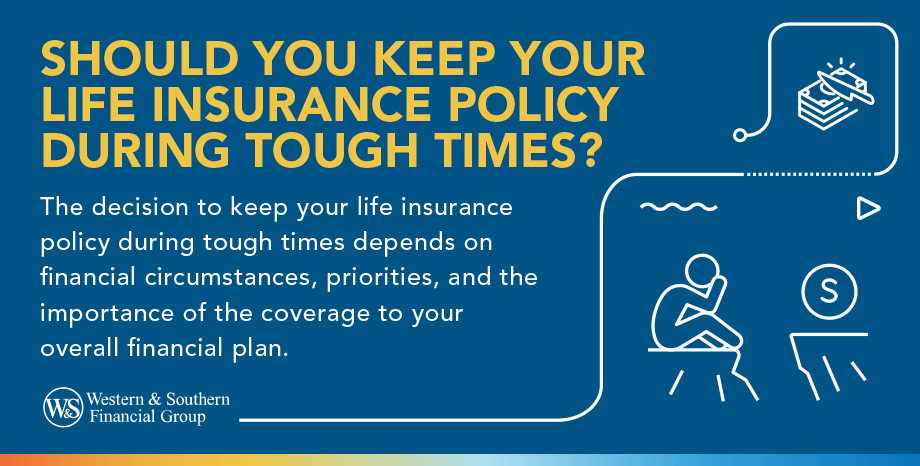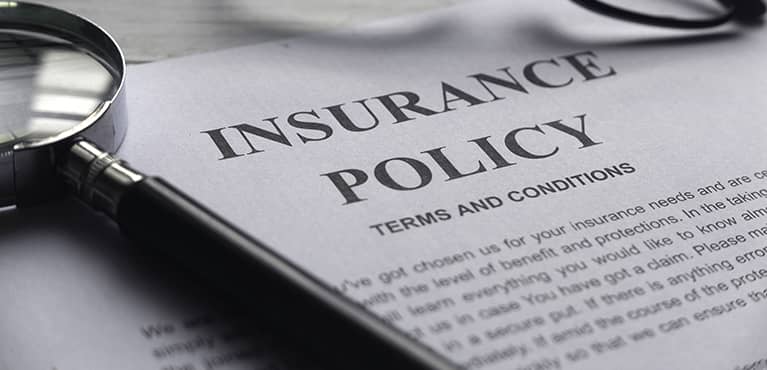Table of Contents
Table of Contents


Key Takeaways
- Ending your life insurance coverage can leave your loved ones financially vulnerable in the event of your sudden passing.
- Reapplying for coverage in the future may be more expensive and difficult due to age and potential health issues.
- Tapping into the cash value of your policy is an option to access funds without canceling the policy, but it may have tax implications and impact the death benefit.
- Explore ways to lower costs, such as using cash value to pay premiums or switching to a more affordable policy.
- Before cancelling your life insurance policy, carefully evaluate all options with your financial advisor for a well-informed decision that can significantly affect your financial plan.
When you hit a financial rough patch, you may wonder whether each and every expense is really necessary. Given its premiums, your life insurance policy might look like a candidate for the chopping block. But as the nature of life insurance is distinct from the rest of your financial plan, you might consider treating it differently than your other bills and expenses.
Here are some reasons it might be worthwhile to keep your life insurance policy during tough times.
The Danger of Ending Your Coverage
If your loved ones depend on you for support, ending your life insurance coverage can be a risky move. If money is already tight, there may be factors you need to consider if you were to pass away suddenly without coverage. Your heirs may then need to find a way to pay for your funeral, cover your final legal expenses, replace your lost income and possibly hire people to cover the work you'd been doing around the house.
In other words, it may be worth thinking about the long run, even when the short term is difficult.
Repurchasing Is Not Guaranteed
If you cancel your cable service, you can easily set things up again later if your financial situation changes for the better. With life insurance, it's not that simple. To regain coverage, you'd first need to reapply for a new policy, which may require additional underwriting. Since life insurance premiums could increase as you get older, there's a reasonable chance the new coverage would be more expensive.
In addition, you may need to go through medical underwriting to qualify, meaning the insurance company would investigate your health. If you develop any health issues in the future, obtaining coverage could become more difficult or even impossible. That's another reason why it's important to be cautious about ending an existing life insurance policy. There's no guarantee you'll be able receive the same coverage you already have today.
Tapping Your Cash Value
Some permanent life insurance policies build cash value, which is money you can access while you're still alive. Using this money could possibly buy you some financial breathing room, although it could create an income tax liability. And while canceling your policy is one way to access the cash value, it's not your only option.
You can take cash value out as a withdrawal (which could reduce the death benefit), or as a policy loan, which gives you the option to pay the money back in the future so you can use it again. Keep in mind, however, that the loan will be subject to interest and could lower the value of your death benefit. If the policy lapses or is surrendered with an outstanding loan, that loan could result in taxable income. Either approach could allow you to access your cash value without ending your policy, unless the policy lapses because no additional premium payments were made.
If you cancel your policy, not only will you lose your coverage, but you might also owe income tax on the cash value you receive. This happens when you receive more money than you paid in premiums — in other words, you owe taxes on the gains. While you'd also owe these taxes for making a withdrawal, you don't pay income taxes for taking money out as a policy loan.
Lowering Your Life Insurance Costs
Before canceling a life insurance policy, you might want to see whether there are ways to reduce the cost. If your policy has cash value, for instance, you may be able use those funds to pay the monthly premium. You could also ask if your insurance company could convert the cash value into a paid-up policy. The amount you've already paid may be enough to buy a smaller policy that no longer charges premiums.
You may also be able to switch your existing policy into something less expensive. If you have permanent coverage, you could switch to a term policy with the same death benefit. Your premiums would be lower because term coverage is temporary and will eventually expire — but it could help keep your family protected for now. If you cannot afford premiums on a term policy, you may want to check if you can reduce the death benefit.
Having some coverage is better than none at all. In addition, consider checking if there are any insurance features that are not essential, like extra coverage for your children or accidental death coverage. Canceling these may help reduce what you owe, but you should carefully consider whether the diminished protection will still meet your needs.
Finally, if a disability is the reason you cannot afford your coverage, check whether you still need to pay premiums. Your policy may include a waiver-of-premium feature in which the insurance company covers your bill when you're disabled.
Managing Missed Payments
If you miss a life insurance premium, you might have a grace period of 30-31 days to pay the money back, depending on where you live. During this time, you'll generally still be protected. After that, your coverage will end.
Throughout the reinstatement period, you can ask to restart your old policy. You'll need to pay back the missed premiums, and the insurance company will need to verify that your health status hasn't changed. If both conditions are met, you may return to your old policy rather than applying for a new one (which might be more expensive).
During these tough times, consider reaching out to your insurance company and financial representative. They can help you look for a solution that continues your coverage in a form that's compatible with your tightened budget. Cancelling your life insurance policy is an important choice that could have a lasting impact on your financial plan. Be sure to consider all of your options, and consult your financial advisor before making your final decision.
Life insurance can help cover unexpected financial burdens. Get a Free Life Insurance Quote






































